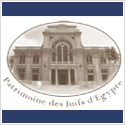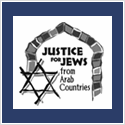Synagogue president recalls his Egyptian youth
New Jersey Jewish News
February 22, 2012
By Elaine Durbach
When the adult education group of the Summit Jewish Community Center turns its attention to the Middle East, the discussion is enriched with a very personal perspective.
Congregation president Maurice de Picciotto grew up in Alexandria, Egypt, as a member of the city’s Sephardi Jewish community. He left in 1961 when he went to study in Europe, but he returned many times over the next few decades, as the community — between 25,000 and 40,000 strong in his childhood — dwindled away.
With his native country in upheaval following the Arab Spring and the ouster of President Hosni Mubarak, de Picciotto’s impressions about the region and its future are being sought more frequently.
It’s been 21 years now since his last visit, but one aspect stood out then and is a dominant factor in the turmoil in Egypt today — the army. “There were one million people in the army in a country with eight million people,” de Picciotto told NJ Jewish News in a phone interview from his home in Chatham. Then, as now, it had massive financial power, owning all kinds of businesses and manufacturing facilities. It is, he said, the kind of power the army’s leaders are unlikely to yield willingly.
Only the Islamic Brotherhood appears organized enough to present any kind of alternative to the military, de Picciotto believes. After 50 years without real political choice or freedom of expression, no other movement has enough strength. Asked if that could mean one kind of repression being replaced with another, he was guardedly optimistic.
“The average Egyptian is a bon vivant,” he said. “They like to drink alcohol and to eat well, and I don’t see the women accepting the strict segregation” that the Islamic Brotherhood would try to enact.
De Picciotto’s wife, Sarine, is also from Egypt. She grew up in Cairo, and they met when, like many Jewish families, hers visited Alexandria for the summer months. They married in Europe, and came to the United States in 1971. They settled in Chatham in 1985, and immediately joined the Conservative SJCC, just in time for the second of their three sons to have his bar mitzva there. The couple now has three grandchildren.
De Picciotto, a retired intellectual property attorney with degrees in electronic engineering and law, went on to serve as men’s club president and chair of the High Holy Days committee, before taking on the presidency last summer. He likes to describe himself as the synagogue’s first “African-American president.”
The family speaks French as their first language. In Jewish day school, de Picciotto also learned Hebrew, Arabic, and English and knew Ladino and Italian. His family can be traced back 11 generations to 17th-century Italy. In his youth, family members still held Italian citizenship, despite a proud record of having lived — and having achieved high diplomatic status — in other countries in the Mediterranean region.
‘No friction’
De Picciotto recalls life in Egypt as rich and full — and interwoven with insecurity. The Jews lived with a perpetual fear of the tide turning against them, and there were waves of departure — in 1948 after the establishment of the State of Israel, after the Suez War in 1956, and after the Six-Day War in 1967. Jewish businesses were abruptly taken over by the military authorities — but often the owners were then asked to run them again, because the soldiers didn’t know how to keep them profitable.
On the other hand, de Picciotto said, the community was extremely affluent and lived in harmony with the groups around them. “There was no sense of friction based on religion,” he said. “We got on well.”
He recalled that the melodies in religious services in Egyptian synagogues reflected the influence of the surrounding culture, and the cuisine of the High Holy Days was an amalgam of traditional and Middle Eastern flavors. For their family, it still is, de Picciotto said, with an additional French aspect. “We go often to Atlantic Avenue in Brooklyn to shop for ingredients, or to the Greek store in Kenilworth.”
His father, Isaac, served for a while as president of the coordinating body that led the Jewish community in Alexandria, managing and controlling its synagogues, schools, a hospital, three cemeteries, an old-age home, a summer camp, and a number of prime real estate holdings. He died in 1990, at Overlook Hospital in Summit, having come to the United States for a visit 10 years after his wife’s death.
De Picciotto went to Egypt a couple of years later with a group of other Jewish Egyptians, in an effort to bring out the community’s Torah scrolls. They were not permitted to remove them. “The government tried to take the sifrei Torah and place them under the control of the Ministry of Antiquities — they said they were national treasures,” he said, “but the community managed to keep possession of them.”
All 56 Torah scrolls that were used by the 12 to 14 synagogues in Alexandria are now stored at one synagogue. “I should have tried to bring them out while my father was still in charge,” he said.
These days in Cairo, de Picciotto said, the Jewish cemetery is in shambles. But in Alexandria — though there are only about 10 aging Jews still taking care of things — the community’s three cemeteries and numerous real estate holdings are still in good shape.
While outside observers make dire predictions for Egypt, de Picciotto is not entirely gloomy about his birth country. He agrees that after the long years of political oppression, it might take decades for democracy to take root, but the lingering civility of the relationship between the Jews and the city authorities in Alexandria still gives him faith in what might be achieved.



